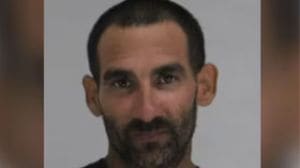Convict has right to have a child: Delhi HC grants 4-week parole to man serving life term for murder
Man sought parole to “protect lineage” and to undergo medical tests to have a child through IVF
 The High Court further ruled that delay in having a biological child would mean “curtailing this fundamental right to parenthood”, due to incarceration of a convict. (Representational image/File)
The High Court further ruled that delay in having a biological child would mean “curtailing this fundamental right to parenthood”, due to incarceration of a convict. (Representational image/File)A convict does not become a lesser citizen only due to incarceration and it is a “natural desire” for an individual to have biological children which can add value or meaning to their lives, the Delhi High Court said in a recent judgment, holding that the Right to Life includes the right of the convict to have a child.
The court granted four weeks parole to Kundan Singh (41) on him furnishing a personal bond of Rs 20,000 with one surety of the like amount, subject to certain conditions.
Singh had filed an application on May 27 seeking parole, claiming he and his wife (38) want to “protect their lineage by way of procreating their child to secure their family tree”, which was dismissed by the Deputy Secretary, Home Department.
He argued before the HC that he wanted to undergo certain medical tests and argued that the couple wanted to have a child through IVF.
Singh was convicted in a 2007 murder case and is serving a life sentence in Tihar Jail. The trial court had in January 2014 convicted him for murder and disappearance of evidence of offence, among other offences, and had sentenced him to rigorous life imprisonment, against which he moved the HC.
Singh had allegedly murdered a friend, whose head, hands and legs below the knee were chopped and found in a black rexine bag in a jungle near Lado Sarai bus stand. The HC division bench upheld that trial court’s order in 2015.
After his request for parole was rejected he moved the HC wherein he prayed that he be released on parole as the right to procreation is not a “mere desire but an essential aspect of human existence”, carrying profound implications for the continuity of familial bonds and the preservation of one’s legacy.
Noting that Singh had already spent more than 14 years in prison, excluding the period of remission, a single-judge bench of Justice Swarana Kanta Sharma in its December 22 order observed that the “right to life under Article 21 of the Constitution of India will include right of a convict to have a child when he is not blessed with a biological child by being extended the relief of grant of parole for this purpose where he needs medical assistance and the biological clock due to his age may weaken and make prospects of having a child bleak”.
“… Judiciary in Bharat has always stubbornly refused to hold that prisoners have no fundamental rights. This court, following the same tradition as handed over by judges of the Hon’ble Apex Court,… respectfully takes the intent to interpret the constitutional rights in favour of upholding and including new situations and challenges (and) holds that the right to parenthood and procreation is a fundamental right of a convict in peculiar circumstances of a case,” the HC added.
The High Court further ruled that delay in having a biological child would mean “curtailing this fundamental right to parenthood”, due to incarceration of a convict.
“The right to procreate, in this Court’s opinion survives despite incarceration, in certain set of facts and circumstances of a given case, as the present one,” Justice Sharma said.
Justice Sharma further clarified that the court is not dealing with prayer for a grant of parole to maintain conjugal relationship and conjugal rights while being imprisoned or allowing conjugal visits.
It was, the HC said, dealing with the fundamental right of a convict to “undergo treatment required to have a child while being granted parole on this ground itself, within the parameters of law and rules governing the grant of parole under the Delhi Prisons Rules, 2018”.
Justice Sharma also observed that the Delhi Prison Rules, 2018, do not find mention of the procreation of children and parenthood as a ground for grant of parole.
The HC said that even though this ground isn’t mentioned, it, however, cannot bar a “Constitutional Court” from going beyond the specific mention of a ground and can, in the facts and circumstances of a case, “interpret and adjudicate” a prayer before it by referring to the “intent and content” of the Rules and the “practical context” in which they are to be interpreted.
The HC, however, said that the right to procreation is “not absolute and necessitates a contextual examination” and by considering factors such as the prisoner’s parental status and age. It said that this right has its “nuances” and if the inmate already has children, this dynamic aspect of the right may be considered fulfilled.








